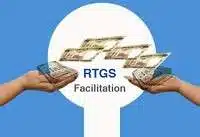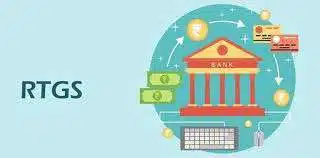
You can try the full form of RTGS and gain confidence at least in meaning of RTGS. Edumantra takes good care of you so buying books for competitive exams is not necessary. Additionally we would like to tell that the full form of RTGS is Real Time Gross Settlement.
RTGS — Real Time Gross Settlement
RTGS Full-Form refers to Real Time Gross Settlement. RTGS is a specialized system of transferring funds, where the securities or money gets transferred from one bank branch to another one on the ‘gross’ or ‘real-time’ basis. The meaning of the ‘settlement done in real-time’ is that the transaction does not undergo the waiting period. The processing of transactions takes place as soon as they are initiated. The meaning of ‘gross settlement’ is that the setting of transactions takes place on a one-to-one basis. It does not get netted or bundled with any additional transaction. By ‘settlement’, the bank means that the payments made after the processing of a transaction are irrevocable and final.
Also Read:-
TIME Full-Form | What is Triumphant Institute of Management Education (TIME)

The RTGS transactions are usually utilized for transactions of high-level. These high-level transactions need immediate clearing, which they frequently receive. This system, in multiple nations, is the only method of getting cleared funds on the same day the transactions are made. Despite this fact, the majority of regular payment does not utilize this system. They use a payment network or system that allows the batching and netting of the payments by the participants.
The RTGS system is seen as an important infrastructure for the economy of a country. Hence, the central banks of the countries are given the responsibility of operating this system. According to many economists, a national payment network, which is efficient and systematic, decreases the exchange costs of commodities and services. Hence, this payment system is vitally necessary for the efficient functioning of the capital markets and banks. A payment system which is weak and inefficient will affect the developmental capacity and stability of a nation’s economy.
Also Read:-
UBI Full-Form | What is Union Bank of India (UBI)
The failures of this system may lead to a decrease in confidence of the people towards the financial system. and the inefficient ‘Nape of financial resources.
The central bank of a nation controls or maintains the RIGS system of that nation. It is highly suitable for high-value, low-volume transactions. It gives a clear picture of the account of an institution at any period of time and also decreases the settlement risk. The main aim of these systems all over the world is to reduce the risk in the EPSS or Electronic Payment Settlement System of high values to a large extent. The settlement is irrevocable, final and immediate. The credit risks that can arise because of the settlement-lags are done away with. This system can cover around ninety-five per cent of transactions within a country’s money market.
The development of the payment system is getting the constant attention of the World Bank. According to this institute, the system acts as the most important component of a country’s financial infrastructure. The World Bank has also given numerous kinds of assistance to these systems in more than one hundred nations. The majority of the RTGS systems are designed to follow global standards and optimum practices.
The central banks have adopted RTGS for many reasons. The competitive pressure from the international financial markets has a heavy influence on the adoption decision. It is also beneficial for the central banks to adopt this system since the banks can access a wide system of RIGS systems of other nations. The knowledge obtained through the RIGS system’s experiences spills over to additional central banks, which also resulted in the adoption decision. The central banks need not develop the system themselves. The cost has been significantly decreased due to sharing the development with the providers that have made the RTGS system in multiple nations, thereby making its adoption easier in many nations. Some of the examples of the providers that made this system in multiple countries are Montran (USA), JV Perego (South Africa), COI (UK), SIA SPA (Italy) and CMA (Sweden).
Download the above Full-Form in PDF (Printable)